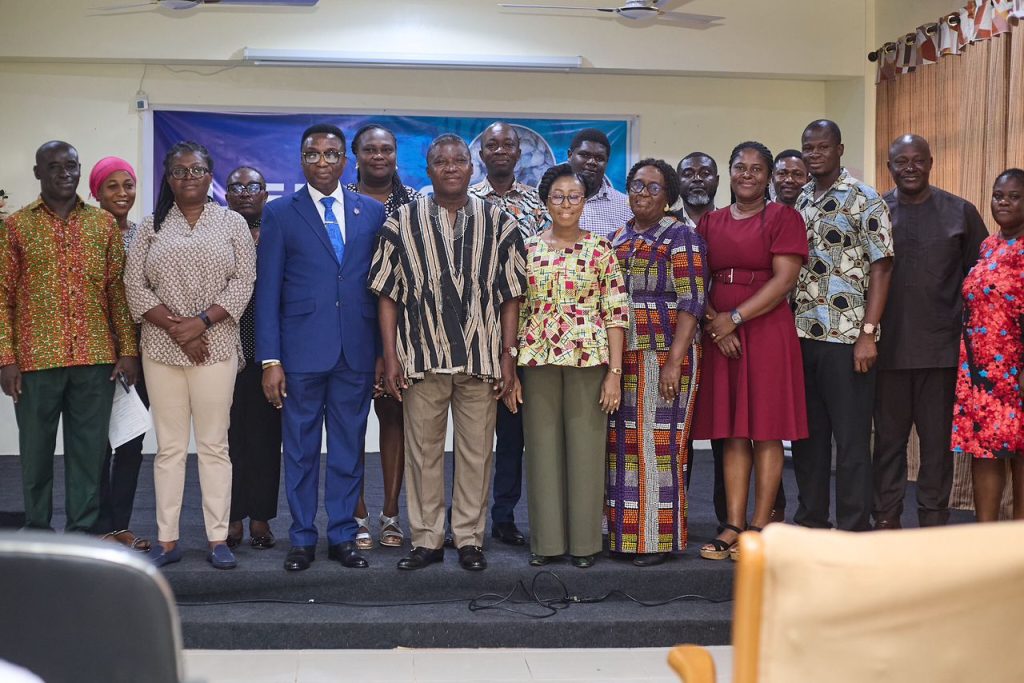By Emelia Nkrumah
Accra, Aug. 28, GNA – The Council for Scientific and Industrial Research (CSRI) Food Research Institute (FRI) has held its maiden edition of blue foods symposium and exhibition to promote the significance of Ghana’s food system.
On the theme “Promoting the importance of blue foods in Ghana’s food systems for health and economic progress” the symposium seeks to highlight the benefits of blue foods by presenting research on the nutritional content and health benefits of blue foods.
It also seeks to explore economic opportunities by discussing the economic potential and value chains associated with blue food production, processing, and marketing.
Prof Charles Tortoe, Director, CSIR-FRI said the goal of the symposium was to promote sustainable practices that promote health by examining ecological perspectives and sustainable practices in blue food production in the face of climate change.
“It is also to foster stakeholder engagement across the blue foods landscape by creating a platform for dialogue among key stakeholders, including researchers, policymakers, industry players, and community representatives,” he added.
Prof. Tortoe said CSIR-FRI was to provide scientific and technological support to the growth of the food and agricultural sectors of the national economy adding that blue-foods offers sustainable solutions to meet the demand of food in the future as well as nutrition in various forms while providing socio-cultural benefits to our citizens.
Economically, he said the fisheries sector was a vital engine of growth, explaining that it employs millions, especially within our coastal communities, and plays a significant role in reducing poverty and fostering economic resilience.
However, Prof. Tortoe reiterated the need for stakeholders to be mindful of the challenges faced in ensuring the sustainable management of our aquatic resources.
“Overfishing, pollution, and the impacts of climate change threaten the ecosystems that sustain our blue food supplies.

It is our collective responsibility to address these challenges head-on, by promoting sustainable practices, investing in aquaculture, and implementing policies that protect our marine environments for future generations,” he added.
Prof. Tortoe said “we at CSIR-Food Research Institute have established a hygienic fish processing facility for the processing of fish such as catfish, tilapia, mackerel, and blue foods laboratory for further studies on blue foods.
“We now have seven training modules on value-added fish and fish products available to the general public, such as no PAHs (Polycyclic Aromatic Hydrocarbons) smoked fish, fish sausages, minced fish, canned and bottled fish among others.
We have also established the Fish Smoking Ovens Museum to bring back to life the history of fish smoking in Ghana.”
Professor Paul Bossu, Director General, CSIR said the goal for the symposium was to foster collaboration, inspire innovation, create a roadmap for the future that would enable us to sustainably utilize and preserve the aquatic resources.
He added that the symposium was a call to discuss, debate, and ultimately develop strategies that would harness the potential of blue foods for the betterment of society.
Prof. Bossu said “blue foods which are food derived from aquatic systems including fish, shellfish, seaweeds and other aquatic plants play a pivotal role in ensuring food security, enhancing nutrition and supporting livelihoods around the world.
He said in the face of growing global challenges such as climate change, overfishing, and the need for sustainable development, the importance of blue foods could not be overstated.
He urged stakeholders to exchange ideas and build partnerships that would drive meaningful change adding that “together we can ensure that blue foods are not only a source of sustenance but also a cornerstone of global health and economic progress.”
Dr Amy Atter, Senior Research Scientist, CSIR-FRI in a presentation said blue foods were essential for boosting food security and nutrition, generating employment and promoting environmental sustainability.
She said “to fully reap the benefits of blue foods and reach their full potential” there was the need for value addition and collaboration between key stakeholders.
These foods are essential for addressing food security, enhancing nutrition, and sustaining livelihoods globally, economic growth, and social well-being particularly for those who live in areas with limited access to land-based food sources.
GNA